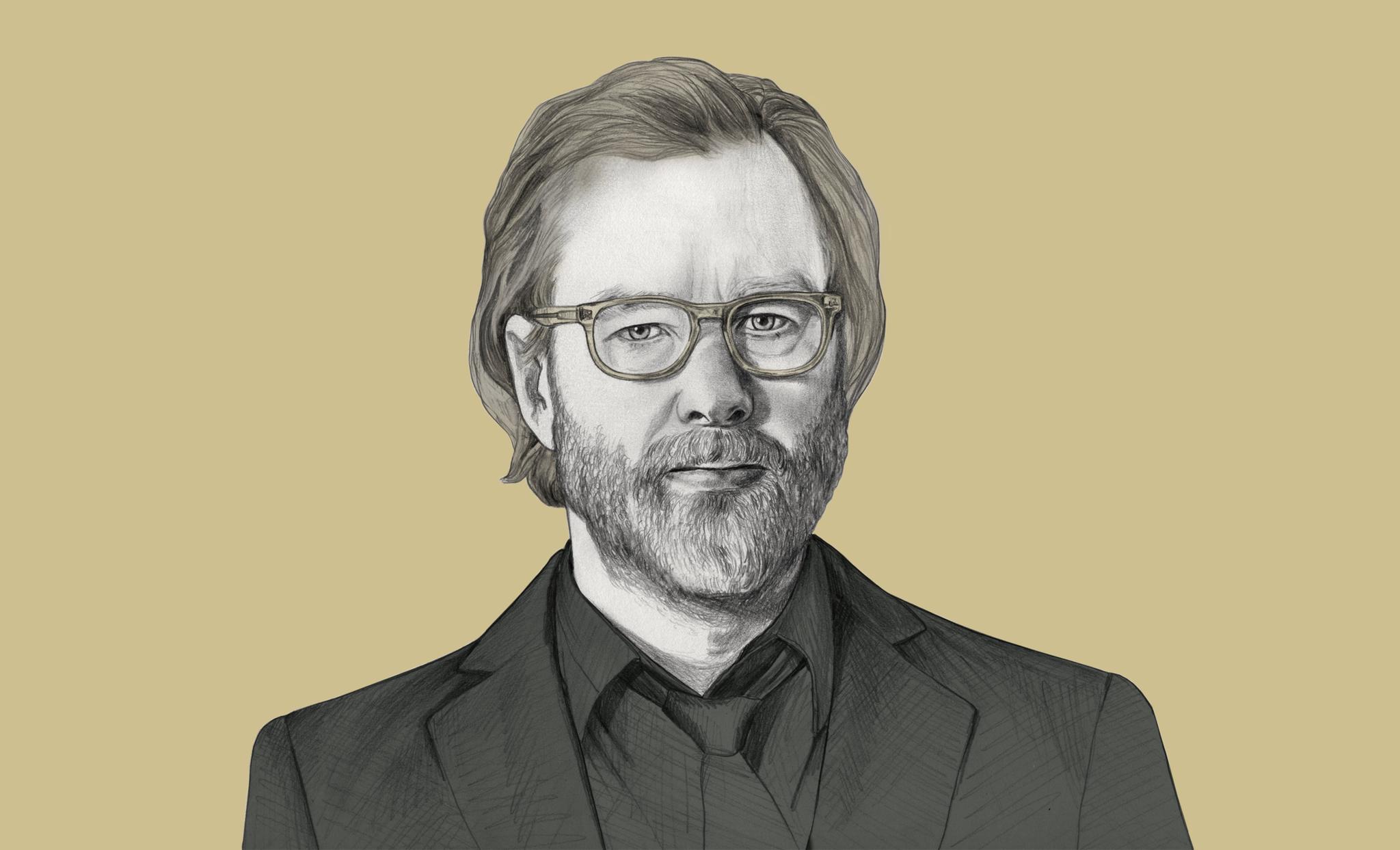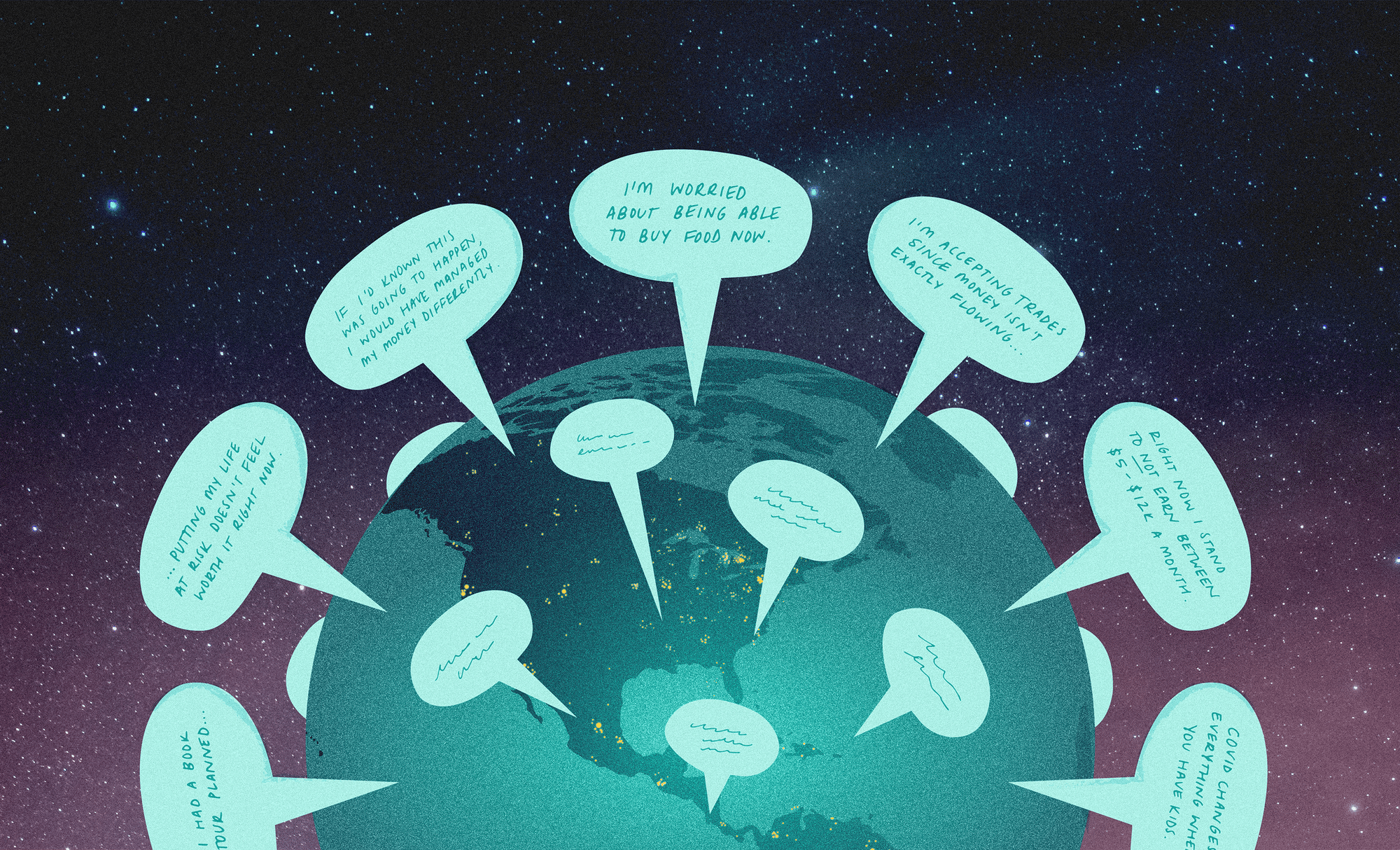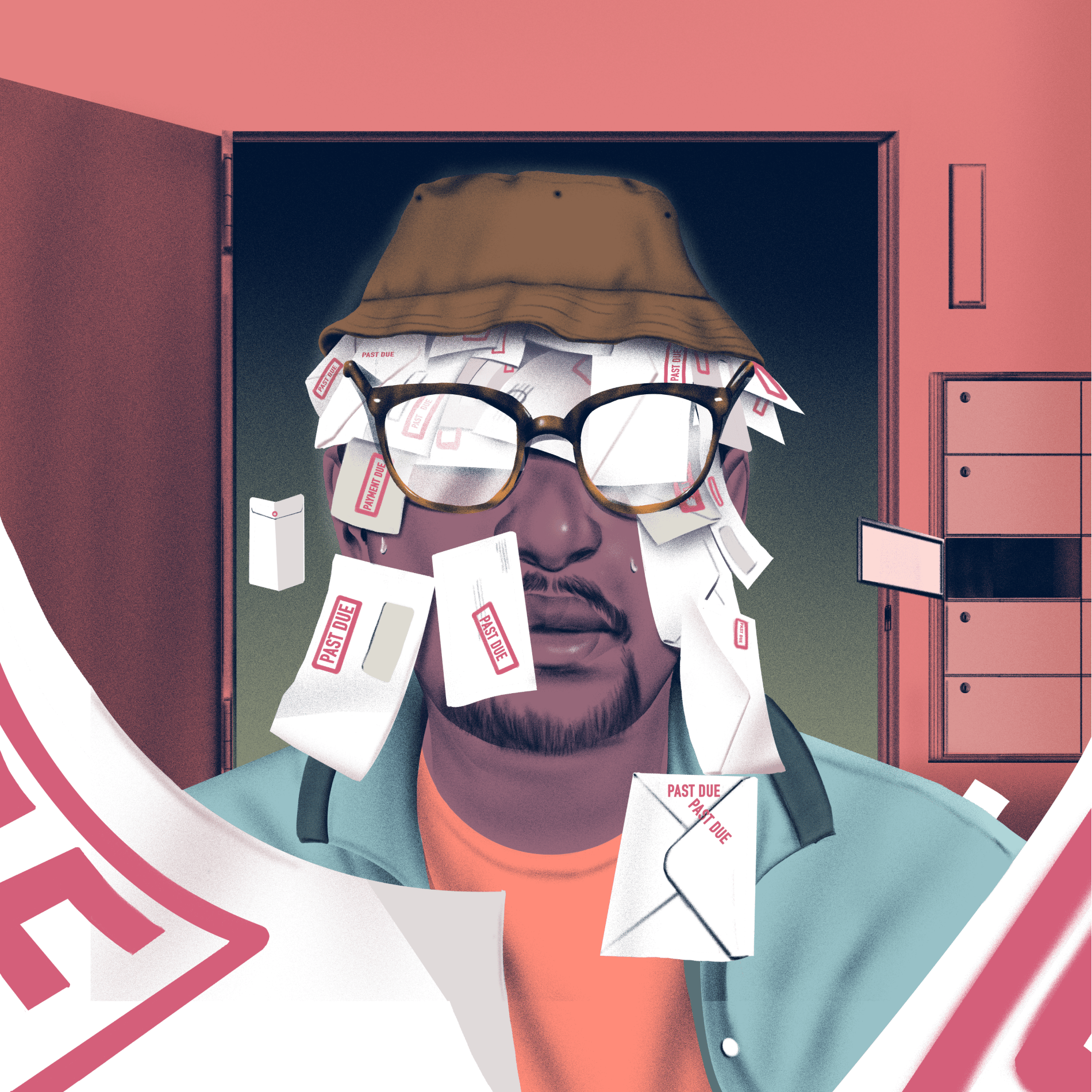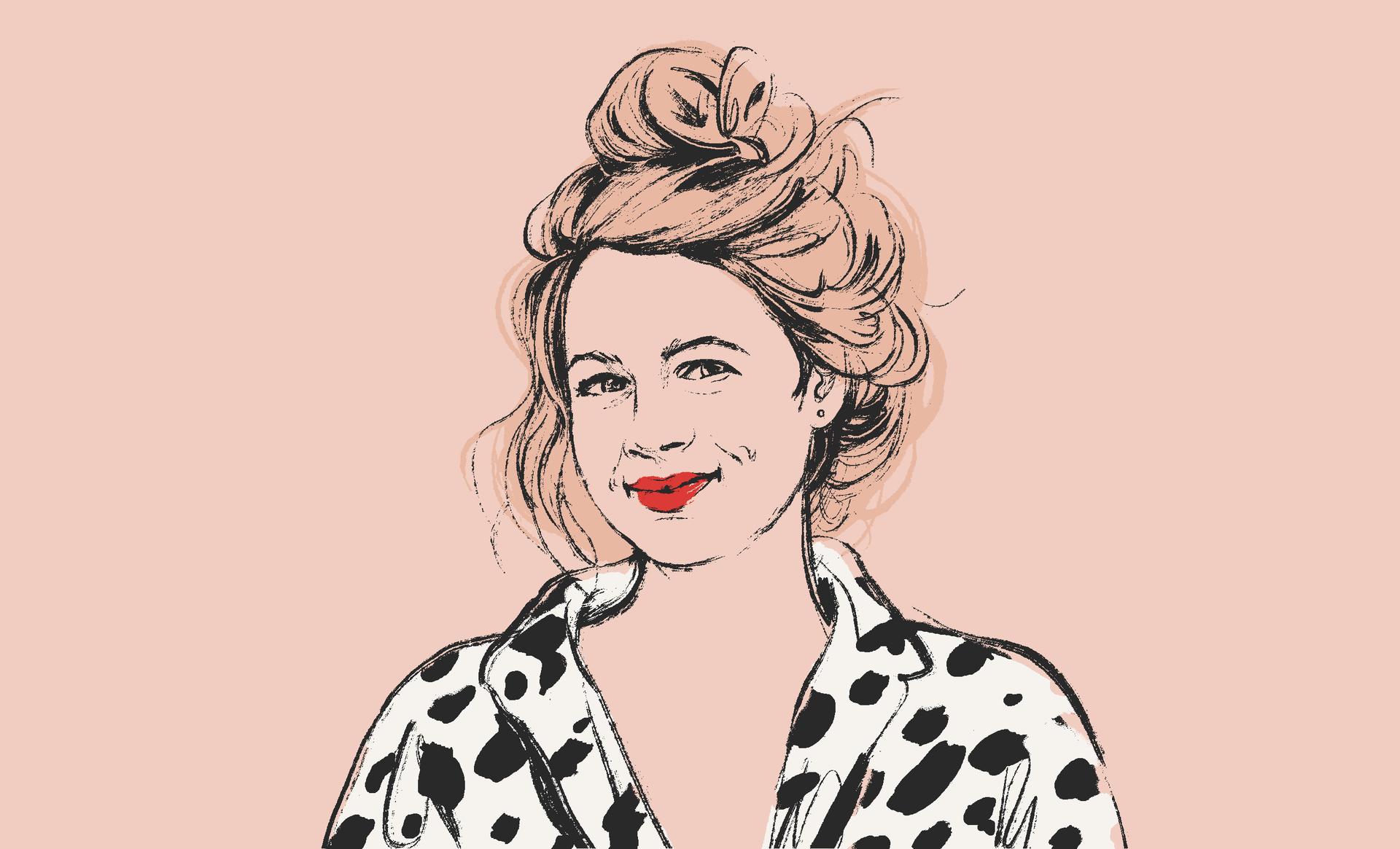
Money Diaries
Matt Berninger, Lead Singer of The National, Tells Wealthsimple Why Losing $1 Million Led Him to Being a Rock Star
Quitting the dot-com world to start a band taught him about the power of good karma and creative freedom—even at the cost of a little cash.
Wealthsimple makes powerful financial tools to help you grow and manage your money. Learn more
Wealthsimple is a whole new kind of investing service. This is the latest installment of our recurring series “Money Diaries,” where we ask interesting people to open up about the role money has played in their lives. Matt Berninger is the lead singer of the rock band The National. In 2014, he formed the side project El Vy with Brent Knopf.
Growing up, anytime I had money, I couldn’t wait to spend it. I can’t really remember ever saving a penny. I just always figured out how to earn more cash if I ran out. For me, it was always more about buying things and having an experience than monitoring a savings account.
Except in a few cases, that hasn’t really stopped. After college, I moved to New York City in 1996 and was lucky enough to land a website-design job at a firm called Nicholson NY. I was a part of the first graduating class that learned how to use HTML and create interactive graphic designs. This was the early days of websites, when you could use only four colors in a logo. I went from junior designer to creative director in a matter of a few years.
"It was that sense that it’s OK to make it up as you go along that gave me the confidence to just start a band."

Sign up for our weekly non-boring newsletter about money, markets, and more.
By providing your email, you are consenting to receive communications from Wealthsimple Media Inc. Visit our Privacy Policy for more info, or contact us at privacy@wealthsimple.com or 80 Spadina Ave., Toronto, ON.
My timing was great—I got in on the ground level of the dot-com boom and was making good money. I also had crazy stock options. On paper, I was worth a million dollars before I turned 30. It was insane. I was happy to have a nice paycheck and spend the money buying records, going to shows at the Mercury Lounge, eating out every day, and drinking at bars. I lived in a huge unconverted loft in Gowanus in Brooklyn and threw massive parties and hosted art-gallery shows.
I eventually moved into my own apartment and bought myself a designer couch from the extremely high-end SoHo design store Moss. I’m a huge impulse buyer, and I had to have that god-awful couch. It made me feel like some cool, artsy New Yorker. I instantly regretted buying it. It was a terrible color; it was way too big for my place and wildly uncomfortable. I don’t think I ever sat on it. I also bought a crazy-expensive—but exceptionally cool—Gaetano Pesce lamp that I regretted less. But I still had no business buying it. I was living a certain idea of life, and those items seemed to fit.
Then it all came crashing down. The Internet bubble popped, and I spent a year and a half at my job laying off all the junior designers I’d become friends with. It was awful. All my stock-option money disappeared. I’d convinced my parents to invest in the company, so I even managed to lose them money. All the things I enjoyed about my job were gone, so eventually I laid off myself in 2003. I was in my early 30s. Granted, I continued to freelance here and there for several years, but eventually the idea of working hard for a client that I didn’t really respect got to me, and I couldn’t do it anymore.
Looking back, though, there was something about the DIY quality of those early web-design days that made me realize there was no script to life. In a way, it was very punk rock and a completely new art form. I think it was that sense that it’s OK to make it up as you go along that gave me the confidence to just start a band. I hadn’t played music for years, but I didn’t worry about whether I was qualified or not. After all, the Sex Pistols weren’t necessarily great musicians, but they did reinvent the idea of a band.
My friends and I formed The National and started playing whatever gigs we could get. I decided that to be a real band, you needed to play shows and have an album. So I put my credit card down and charged the entire first album. I was happy to do it. I thought it was great that we’d be able to have something that I could listen to that we’d made ourselves. Had I valued money more at that point, I probably wouldn’t have done it.
If my timing in starting out in the dot-com world was perfect, my timing in starting a band was horrible. We released our first album, The National, in the early 2000s, the same year bands like The Strokes, Interpol, Yeah Yeah Yeahs, Liars, The Walkmen, and TV on the Radio were all creating albums and performing in New York City. They were cool as shit; we were just figuring out how to be a band. If you look at old photographs of us, you can tell we didn’t know how to look cool. It should have been depressing, listening to their albums and seeing them live and comparing it with our situation, but I was just happy to have an album. I thought it was great that we’d actually done something, and that was enough.
I think you have to be pretty fearless when it comes to creating anything. We toured Europe a lot from 2002 to 2004 and came back with far less money than we’d started with. It would actually get depressing. I never loved traveling, and I felt homesick. We stayed in disgusting hostels and trucker hotels where they literally hosed down the rooms. Meanwhile, my friends back in New York were starting to buy houses. But ultimately it didn’t matter. We all knew we could pull the plug if we wanted to—go back to our regular jobs, freelance, or liquidate a 401K. But we forged ahead. It helped that I was never completely broke and never really faced the prospect of not being able to pay rent.
Timing got a little bit better for us when we released our third album, Alligator, in 2005. Suddenly all these music blogs and sites that shared information about bands appeared. There were dangers in that world—certain sites seemed to take joy in putting a band on a pedestal and then killing them off so it could become a weird, power blood sport of indie rock. We were never on a pedestal, but through word of mouth, we started getting more festival gigs, which were not only lucrative but also increased our fan base. We nearly missed our first, most important festival show in the summer of 2007 and had to ask Cold War Kids to leave their gear on stage since we didn’t have time to set up our instruments. They were kind enough to help us, and we performed. We would have been in debt for a while if we’d missed that show.
We started making a little bit of money, but when there was a choice, we always opted for creative control over higher paychecks. We signed with a label that didn’t insist on money-making hits to recoup big advances. That let us do what we wanted to do and let us define our sound. That was particularly true of our fourth album, Boxer, in 2007. We also noticed that the bands that lasted the longest were often the most respectful, helpful, and professional, so we followed suit. That stuff matters when you’re trying to chase a dream and everything is pretty dismal and exhausting.
In some ways, I haven’t changed my attitudes about money from when I was a teenager. A few years ago, I poured tons of my own money into a documentary that was mostly about my brother because I thought it would make a great film and be an awesome thing to have. It was never about making money. I think my parents instilled that in me a bit—money was never a symbolic image of success, so I never had any anxiety about it growing up. I was happy to spend the money. I still am. In fact, I often insist on spending the extra 20% on something if I know it’s going to last longer and make me happy. Granted, at this point I’m mostly just talking about nice socks and underwear. Which I recommend to anyone, regardless of your financial situation.
As told to Craig Charland exclusively for Wealthsimple. We make smart investing simple and affordable.
Wealthsimple's education team is made up of writers and financial experts dedicated to making the world of finance easy to understand and not-at-all boring to read.









